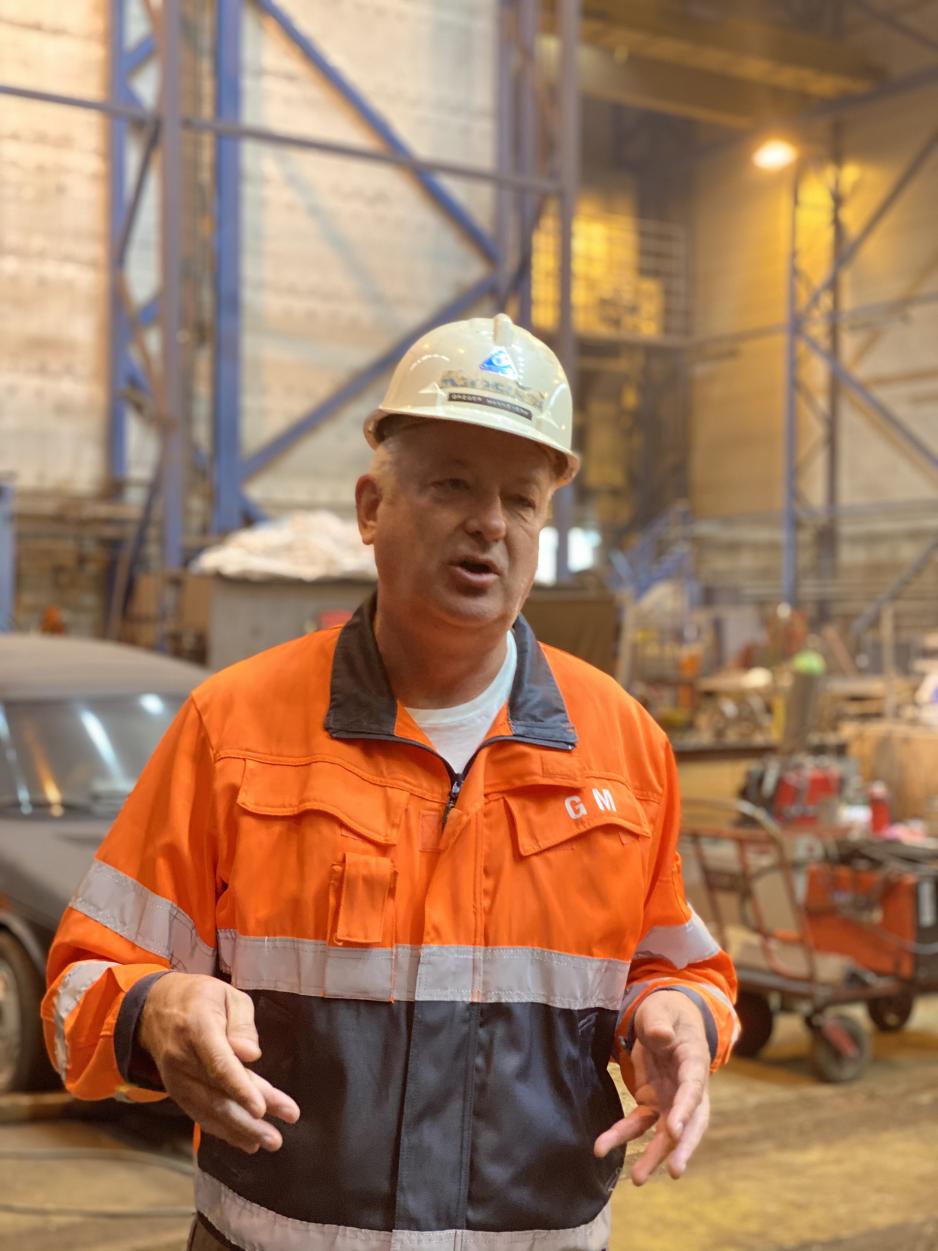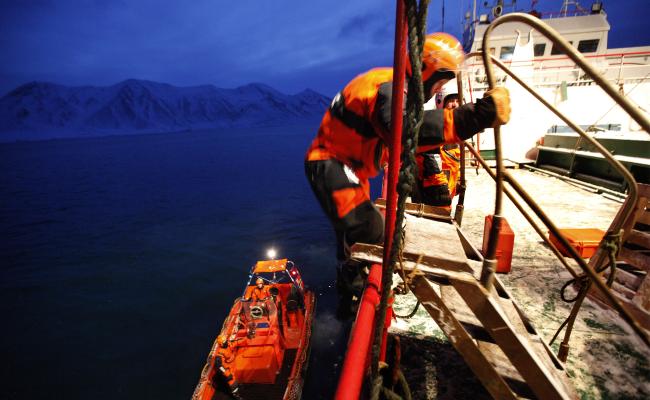"The Constant Calls for Port Bans Causes Great Uncertainty for Our Operations"
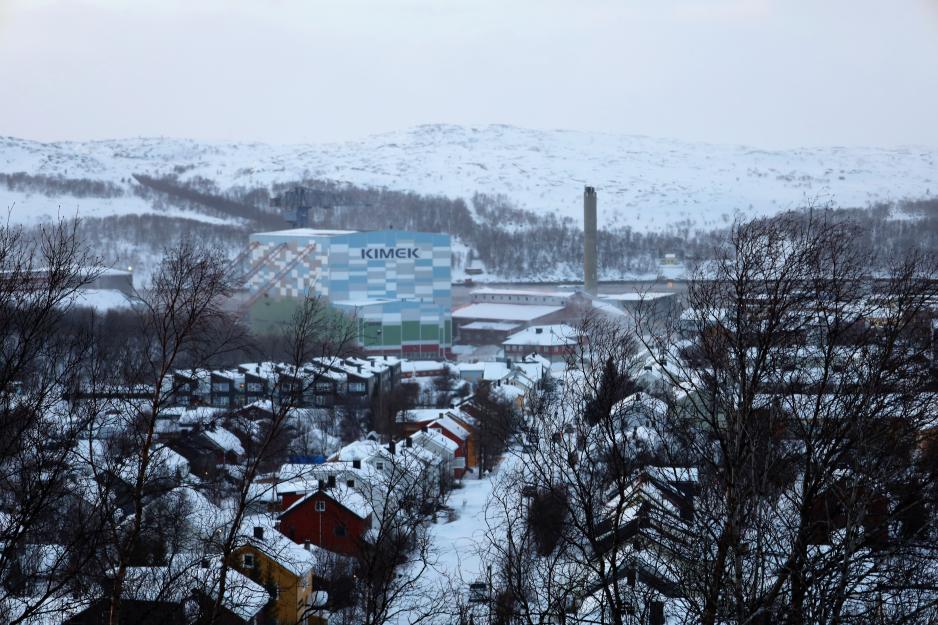
View of Kirkenes and the cornerstone business Kimek. (Photo: Hilde Bye)
Continued debate about port bans creates significant uncertainty for Kimek in Kirkenes, Northern Norway. "The challenge is that some parties cannot let this issue go. It leads to uncertainty for our operations, our employees, and for the community here," says CEO Greger Mannsverk.
"The government has thoroughly justified the decision to keep some ports open for Russian vessels, but some political parties cannot let this issue go," says CEO Greger Mannsverk of Kimek to High North News.
The continued debate about the port ban is challenging, says Mannsverk. If the port in Kirkenes in Eastern Finnmark is closed down to Russia, the shipyard will probably have to close down, the CEO has previously stated.
Similar to a large portion of the business sector in Sør-Varanger municipality, Kimek has based itself on trade and cooperation with Russian customers. For Kimek, Russian fishing vessels have been its main customers for many years. This was meant to be Kimek's main market, when the state, through its ownership in AS Sydvaranger, established Kimek in 1986, says the CEO.
"The constant pestering creates uncertainty for our operation, for all my employees, and for the community here. If the Port of Kirkenes were to be closed as well, I believe that the number of inhabitants in Sør-Varanger municipality would drop from ten thousand to five and a half thousand over the course of the two years. It is serious. We have a permanent knot in our stomachs," he says.
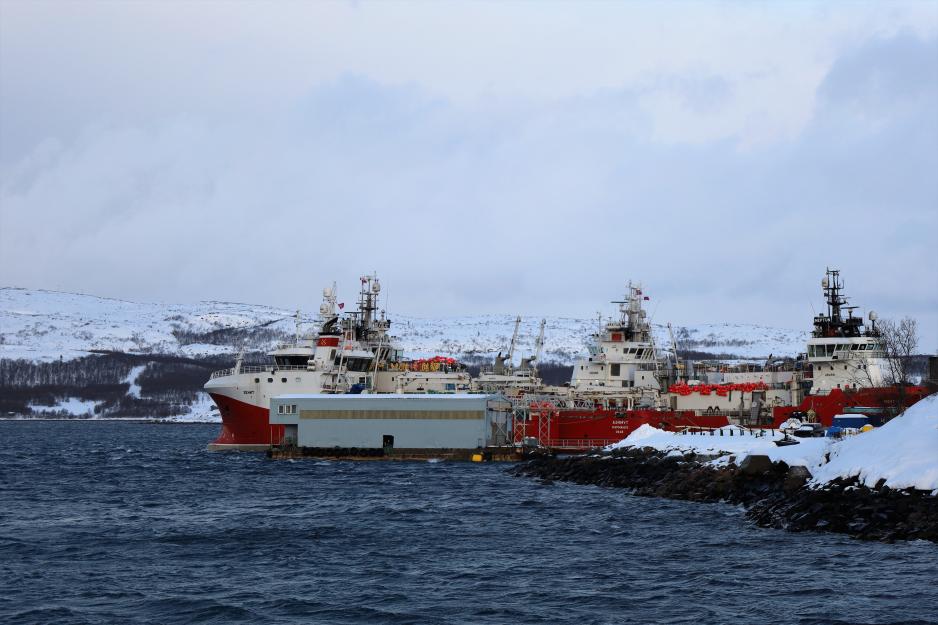
Russian fishing vessels docked in Kirkenes. (Photo: Hilde Bye)
Fishery cooperation and joint management
The issue of Russian trawlers' continued access to Norwegian ports was recently discussed on NRK Helgemorgen. As is known, the Norwegian government closed Norwegian ports for Russian-flagged vessels, with the exception of Båtsfjord, Tromsø, and Kirkenes.
According to NRK, referring to numbers from E24, Russian vessels landed fish in Norway for NOK 1,9 billion in 2022, an increase of 42% from the previous year.
"The Liberal Party and I oppose that this practice is allowed to continue. It adds great value to the Russian economy, which is now a war economy. We believe that it is high time that we have a complete port ban for Russian fishing vessels in Norway. We must do what we can to end the ongoing war," said spokesperson for business and industry policy, Alfred Bjørlo (the Liberal Party) on Helgemorgen.
The State Secretary of the Norwegian Ministry of Trade, Industry, and Fisheries, Vidar Ulriksen (Labor), also participated in the debate and believed that it would be a misunderstanding to think that denying Russian port of calls will lead to decreased income for Russia.
"Sanctions on food have not been introduced and fish is being imported to Europe as before. It has no actual economic impact if the fish is landed in Norway or shipped by reefer vessels directly to the European continent," said Ulriksen and added that only ten percent of what is landed in Norway is sold on to Norwegian processing, while the rest is mainly sent to Europe.
"What we emphasize now is that we have a fishery cooperation with Russia, something that is important in order to have stability in the High North. That is, despite everything, where we are and where we border Russia."
In its justification of why it is necessary to have some exceptions in the port ban for Russian trawlers, the Norwegian government has highlighted the responsibility of protecting the cod stock in the Barents Sea.
"We have a responsibility for the resource management to be carried out also after the war in Ukraine is over. It is a fact that we share important fish stocks in the High North with Russia. I believe that it is wise to be calm about what is happening in the High North so that we can return more quickly to a more normal situation in regard to resource management in our northern areas," says Ulriksen.
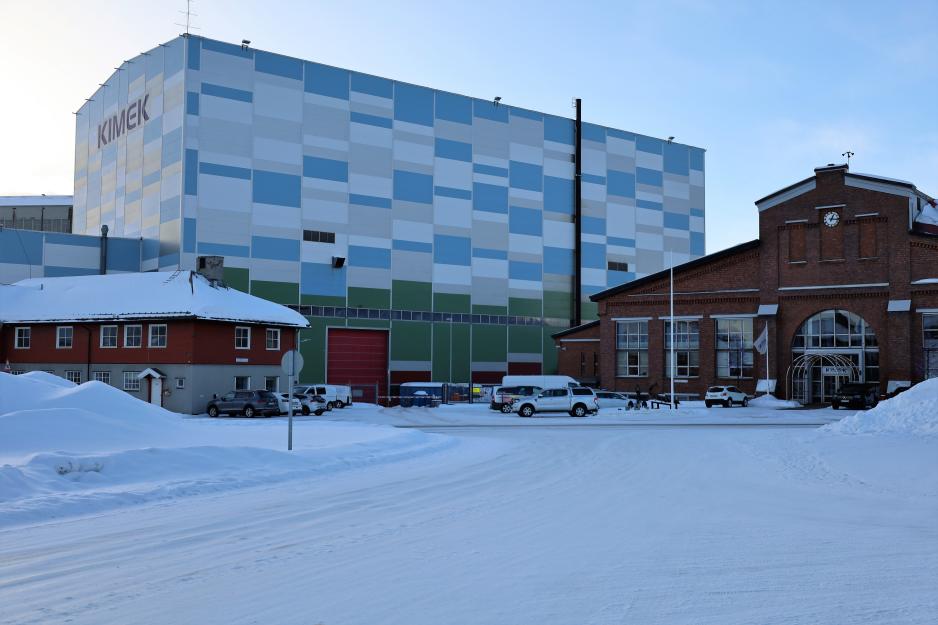
Kimek offers repairs, maintenance, and remodeling of vessels, as well as a number of other industrial services. (Photo: Hilde Bye)
Operates as close to normal as possible
HNN talked to Mannsverk in May of last year, in the wake of the first economic sanctions against Russia. Mannsverk then pointed out that they still operated as close to normal as possible and that the business was paid for its work.
What is the situation like for you now, one year after?
"As known, there have been changes in regard to payment and bank systems, but we are trying to do business as usual. It is currently working as normal, but the challenge is the long-term uncertainty. All credit to the government which has kept looking upward and forwards, made some tough decisions, and been clear that Russian vessels should have some Norwegian ports to go to," he emphasized.
"The crisis package does not work"
Although Mannsverk is pleased that the government has stuck to decisions about exceptions in the port ban, he points out that the crisis package that was presented by the government in March of last year has not worked as well as they had hoped for.
In the spring of 2022, the government presented a crisis package for the business sector in Eastern Finnmark [Norwegian only]. The government pointed out that Russia's warfare in Ukraine and the following sanctions lead to great uncertainty for the business sector in the region. As mentioned, the maritime sector in Sør-Varanger municipality, such as Kimek and Henriksen shipping, is especially connected to the Russian market and therefore vulnerable to the impact of the sanctions.
"We have had visits from several ministers and we have told them about our challenges and we have been strongly encouraged to restructure, but that part has not come any further. The crisis package that was presented seems just as bad now as it was then."
The package consisted of both district-oriented measures, a support system for loss of income, a loan guarantee scheme, and a low-risk scheme. In a former interview with HNN, Mannsverk pointed out that the government's crisis package had to be adjusted so that it matches what the companies really need.
Some of the measures that have worked the best are the regional funds that was allocated through the counties to the municipalities and further spread out, for example to business associations. However, the business-oriented measures have not been successful, explains Mannsverk.
"We have sent out proposals on what we believe needs to happen. We need high-risk loans, not low-risk loans, and we need funds to carry out a restructuring. Restructuring must also take place when people are present, not when they have relocated. The crisis package is good, but is does not work properly. We hope that some of this will change in the budget negotiations that are now taking place," he says and adds:
"There is no doubt that Ukraine suffers the most in all this and I am happy to the see the clear support for Ukraine from the government."
"We must support Ukraine, strongly distance ourselves from the Russian leadership, and participate in the EU sanction regime. At the same time, Norway is in a special position. We must remember that our border with Russia is staying put and that we must have a neighborly relation in the future as well. It is also in the Norwegian nation's interest that people live in the border area in the north and they must have livelihoods. Separating the Russian regime from the Russian people is also central. We must resist stigmatizing an entire people. This is a difficult, but necessary balance," Mannsverk previously stated to the newspaper.
Also read
This article was originally published in Norwegian and has been translated by Birgitte Annue Molid Martinussen.


